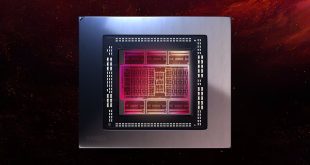While AMD might struggle to match Intel's tick-tock on the CPU side of life, the old ATi graphics team has no such difficulty in pushing out next-generation GPUs. We have spoken with our sources in the Far East and discovered AMD's launch plans for the Radeon 8000 series. KitGuru orders a bowl of ‘meat with noodles' and chews the cud.
A great spot by Anandtech earlier in the year means that we know quite a lot about the AMD Radeon 8000 family of graphics processors. Specifically, that the top end ‘Venus' cores will be made on a proven 28nm process and have around 5 billion transistors available to play your games and surf for dodgy videos.
These 3GB monsters will be configured in a number of ways, including the 8970 premium ‘XT' flavour, as well as the slightly less spicy 8950 with the fall out parts marketed under 8930. There are also plans to look at a dual-GPU product under the name 8990 – but this could well be shelved if the costs are too high or the performance advantage too low. You only have to look at Sapphire's 6GB 7970 Toxic to see what can be achieved with a single chip.
So there's the background detail on what will be launched near the front of the new wave of AMD heavy metal thunder from the Sea Islands – but what about dates?
We've learned that, right now, partners are planning to show off the Radeon HD 8970 XT at CeBIT in March – with a full launch at Computex in June.
However, the products are actually ahead of schedule, giving AMD the option to launch early if something new comes along from nVidia. If AMD is as far down the line as we suspect with its development, there will be some ‘behind closed doors' displays for key customers in a secret hotel room in Vegas come the first week in January.

KitGuru says: With the price cuts ahead of nVidia's 660 launch, AMD is competitive right now. Unless something changes with the Jen Hsun team, there's no real pressure on AMD to change. What this market really needs is new consoles to be launches, so the default resolution/image quality for games increases substantially – and the same for desktop LED monitors.
Comment below or in the KitGuru forums.
 KitGuru KitGuru.net – Tech News | Hardware News | Hardware Reviews | IOS | Mobile | Gaming | Graphics Cards
KitGuru KitGuru.net – Tech News | Hardware News | Hardware Reviews | IOS | Mobile | Gaming | Graphics Cards



AMD’s strategy in terms of GCN architecture is going good, which is the main reason for the success of Trinity APUs too. AMD hasn’t expected the performance of HD7970GHz when normal HD7970 was released. They had planned GHz level clock speed, only with HD 8000 series.
But now AMD is going to increase both the SP count as well as core clock speed in HD 8970. But I really expected them to move out of GDDR5 which may not happen with HD 8000 series.